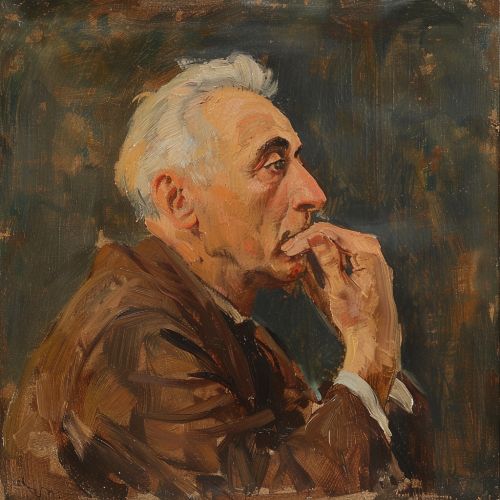Roland Barthes
Early Life and Education
Roland Barthes was born on November 12, 1915, in Cherbourg, France. His father, Louis Barthes, a naval officer, was killed in a battle during World War I when Roland was less than a year old. This left his mother, Henriette Barthes, to raise him alone. Barthes spent his childhood in Bayonne, a city in southwestern France, where he developed an early interest in literature and the arts.
Barthes attended the Lycée Louis-le-Grand in Paris, where he excelled in his studies. He went on to study at the University of Paris, also known as the Sorbonne, where he earned a degree in classical literature. During his time at the Sorbonne, Barthes was influenced by the works of Jean-Paul Sartre, Maurice Merleau-Ponty, and other prominent intellectuals of the time.
Academic Career
Early Academic Work
Barthes began his academic career as a teacher, working in various institutions in France and Romania. His early work focused on classical literature, but he soon became interested in the emerging field of semiotics, the study of signs and symbols. Barthes' first major publication, "Writing Degree Zero" (1953), explored the concept of "writing" as a neutral, transparent medium, free from the constraints of traditional literary forms.
Semiotics and Structuralism
In the 1960s, Barthes became a leading figure in the field of semiotics and structuralism. His seminal work, "Mythologies" (1957), is a collection of essays that analyze contemporary cultural phenomena as systems of signs. Barthes argued that everyday objects, events, and practices could be "read" as texts, revealing underlying cultural myths and ideologies. This work established Barthes as a key thinker in the study of popular culture and mass media.
Barthes' interest in structuralism led him to explore the works of Ferdinand de Saussure, the Swiss linguist who laid the foundations for modern semiotics. Barthes applied Saussure's theories to a wide range of cultural texts, from literature and art to fashion and advertising. His book "Elements of Semiology" (1964) is a systematic presentation of his semiotic theory, offering a framework for analyzing the structures of meaning in various forms of communication.


Major Works and Theories
"S/Z" and the Analysis of Narrative
One of Barthes' most influential works is "S/Z" (1970), a detailed analysis of Honoré de Balzac's novella "Sarrasine." In this book, Barthes deconstructs the text into a series of "lexias" or units of meaning, demonstrating how narratives are constructed through a complex interplay of codes and conventions. "S/Z" is considered a landmark in the field of literary criticism, showcasing Barthes' innovative approach to textual analysis.
The Death of the Author
In his essay "The Death of the Author" (1967), Barthes challenged traditional notions of authorship and interpretation. He argued that the meaning of a text is not determined by the intentions of its author but is instead created by the reader. This idea was revolutionary, as it shifted the focus of literary criticism from the author to the text itself and its reception by readers. Barthes' concept of the "death of the author" has had a profound impact on contemporary literary theory and criticism.
A Lover's Discourse
In "A Lover's Discourse: Fragments" (1977), Barthes explores the language of love and desire through a series of fragmented reflections. Drawing on a wide range of literary and philosophical sources, Barthes examines how lovers communicate their feelings and construct their identities through language. This work is notable for its lyrical and introspective style, offering a deeply personal perspective on the experience of love.
Later Life and Legacy
Teaching and Influence
In the later years of his career, Barthes held various academic positions, including a professorship at the Collège de France, where he was appointed Chair of Literary Semiology in 1976. His lectures and seminars attracted a wide audience, and he continued to publish influential works on literature, culture, and semiotics.
Barthes' ideas have had a lasting impact on a wide range of disciplines, including literary theory, cultural studies, film studies, and media studies. His work has inspired generations of scholars and continues to be a central reference point in contemporary critical theory.
Death
Roland Barthes died on March 26, 1980, in Paris, as a result of injuries sustained in a car accident. His death marked the end of a prolific and influential career, but his ideas and writings continue to resonate in the fields of literature and cultural studies.
